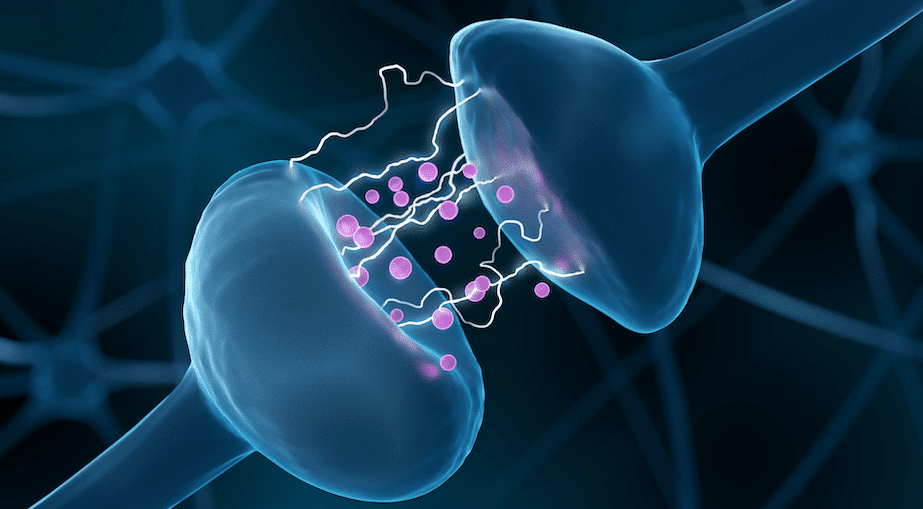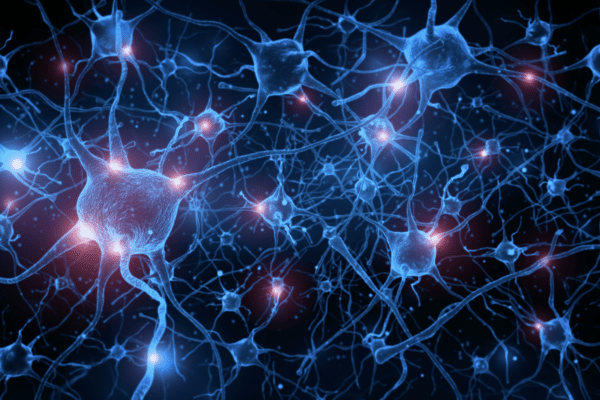Which Neurotransmitter Is Involved in Drug Addiction?

It’s important to know that individuals struggling with substance use should be held accountable for their actions. That being said, people may be at a higher risk of substance abuse due to factors like:
- Mental health disorders
- Environment (the beliefs and attitudes of one’s family, interaction with certain peer groups, etc.)
- Genetics (inherited traits may speed up the progression of substance use)
- Using drugs at a young age
Regardless of how it develops, addiction looks the same in our brains. Drugs alter our brain chemistry, making it harder for us to quit, leading to severe consequences.
So, which neurotransmitter is involved in drug abuse? Well, there isn’t just one. From the experts at Master Center for Addiction Medicine, here is some more information about neurotransmitters and their role in substance use.
What Are Neurotransmitters?
Before defining neurotransmitters, let’s take a look at the makeup of your brain.
You’ll find many different types of cells in the human brain—glia, astrocytes, and oligodendrocytes, to name a few. But nerve cells are by far the most well-known.
Nerve Cells (AKA Neurons)
The average human brain has around 86 billion nerve cells. Also known as neurons, these cells carry information throughout our bodies. They use chemical and electrical signals to dictate our breathing, thinking, and much more.
Each cell consists of a body, an axon, and dendrites:
- The cell body and its nucleus control what the cell does.
- The axon extends out of the body and sends messages to other cells.
- Dendrites branch out from the body and receive signals from other cells.
How Do Neurons Communicate with Each Other?
Our brains might have lots of neurons, but these cells don’t physically touch either. So how exactly do they communicate?
This is where neurotransmitters come in. These cells use these chemical messengers to send signals to one another.
A nerve cell will release neurotransmitters via its axon. The neurotransmitters cross the synapse, the microscopic space between two nerve cells. The second nerve cell receives these neurotransmitters via its dendrites. Then, depending on what type of neurotransmitter is received, the cell will respond accordingly.
Inhibitory vs. Excitatory
Generally speaking, neurotransmitters may either cause inhibitory or excitatory responses.
Inhibitory neurotransmitters make a neuron less likely to carry out a specific action. Excitatory neurotransmitters, on the other hand, stimulate nerve cells, prompting them to send messages to other cells.
Examples of Neurotransmitters
Our bodies have over 100 different neurotransmitters. Below, we provide some examples of the ones most relevant to brain function and substance use:
Dopamine
Dopamine plays a huge role in our bodies. While dopamine influences our learning, concentration, memory, etc., it is best known for how it influences our body’s reward system. Having adequate amounts of dopamine is essential for your physical, mental, and emotional well-being.
Serotonin
Also known as “the happy chemical,” serotonin contributes to feelings of well-being. It also helps regulate our mood and sleep-wake cycle.
Glutamate
Most experts regard glutamate as the most important transmitter for normal brain function. Glutamate plays a major role in learning, fine and gross motor skills, and much more.
Endorphins
Endorphins are similar to serotonin in that they cause feelings of well-being. They can also reduce pain and alleviate stress.
Gamma-Aminobutyric Acid
Gamma-aminobutyric acid is an inhibitory transmitter. It can improve sleep, relieve anxiety, and reduce overall excitability.
The Impact of Drug Addiction on Neurotransmitters
Now, you should be familiar with neurotransmitters and how they work in our brains.
But how do neurotransmitters relate to addiction? Let’s first take a look at how substance use affects transmitters.
How Substance Use Affects Neurotransmitters
When someone participates in substance use, it sends chemical signals to neurons. Neurons respond by altering how they release and receive neurotransmitters.
As we mentioned earlier, these responses will be either inhibitory or excitatory. This means that a drug can either prevent cells from functioning normally or drive them to behave a certain way.
The Effects of Different Drugs on Neurotransmitters
Individuals experience different effects based on what drugs they use. This is because different drugs target different neurotransmitters.
Below, we provide some examples of how different types of substance use affect the body’s neurotransmitters:
Cocaine
Cocaine binds to transmitters that regulate dopamine. The result is an increase in dopamine production, causing extreme feelings of euphoria.
Opioids
The body responds to heroin, fentanyl, and other opioids in a way similar to how it responds to the neurotransmitters enkephalin and endorphin.
However, the body’s response to opioids is much more pronounced. Opioids bring on decreased alertness, increased analgesia, and slowed breathing.
Hallucinogens
Hallucinogens can influence the production of serotonin, causing hallucinations, feelings of euphoria, etc.
How This Leads to Addiction
Neurotransmission is a natural process in our bodies. Nerve cells use chemical messages to control normal brain functions, stimulate feelings of well-being, etc.
When someone uses drugs, they disrupt this natural process. Substance use can exacerbate the effects of transmitters, causing users to lose self-control.
For example, consider someone who uses cocaine. As we mentioned above, cocaine facilitates dopamine production. Users experience extreme feelings of euphoria. After the high fades away, the user will experience a crash. They go back to cocaine because they want to experience the euphoria it provides.
As a person continuously uses the drug, it will alter their brain chemistry. Neurons will adapt, becoming less sensitive to certain neurotransmitters. This means the user will have to use more of the drug to experience the same effects.
The Consequences of Addiction
Of course, users affected by drug addiction experience severe consequences. Their relationships often suffer, as do their finances.
Addiction is also detrimental to your physical health. Drug use can cause the production of dangerous amounts of neurotransmitters.
For instance, if you use a drug that rapidly increases gamma-aminobutyric acid, you could experience cessation of breathing, brain damage, or even death. This is because of the substance’s inhibitory properties.
Withdrawal
For many, recovering from drug addiction may seem impossible. This is largely due to the withdrawal symptoms one faces.
As we’ve mentioned, drugs alter one’s brain chemistry. This means that when an individual who is addicted to a drug abstains from a drug, their brain isn’t getting the stimulation it’s become used to. The result? Withdrawal symptoms.
People who are addicted may experience anything from lethargy and mood changes to seizures. The type of symptoms depends on the type of drug used, the severity of the addiction, etc.
To experience immediate relief from these symptoms, addicted invididuals go back to using the drug. It’s even harder to break the cycle of addiction when you consider the affection that people have for the substance they use.
Think about it. When someone uses a substance, they are with certain people, in certain places, etc. They tend to associate these things with the euphoria that drugs bring on. So, when they try to quit, they are constantly reminded of the drug via the associations they’ve made with it.
What to Do to Maintain a Healthy Brain
As you can see, a healthy brain is crucial to your mental, emotional, and physical well-being. Below, we provide some ways you can balance your body’s neurotransmitters:
- Avoid illicit substances and situations in which you might be tempted to use them.
- Talk to your doctor about prescription medications. Medications alter your brain chemistry, so you should be aware of the risks they carry.
- Acknowledge your risks. Some people are at a higher risk of addiction than others. Knowing that your family has a history of addiction, being aware of your environment, etc. can help you take preventative action.
- Look for natural ways you can boost dopamine levels (exercise, healthy diet, etc.).
- Talk to a professional. Taking care of your mental health is crucial for a healthy, well-functioning brain.
Get Professional Help Today
If you or a loved one are struggling with substance abuse, know that you don’t have to face this battle alone. It is difficult to overcome substance addiction without expert help.
Contact Master Center for Addiction Medicine today. Our team of professionals is ready to help you on your road to recovery.
Resources:
US National Library of Medicine, National Institutes of Health
National Institute on Drug Abuse
Surgeon General


